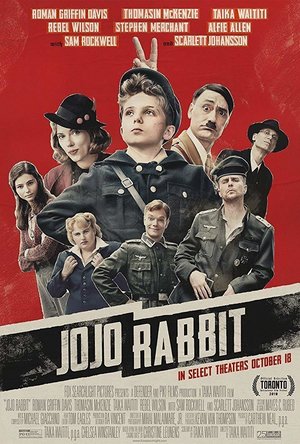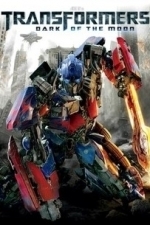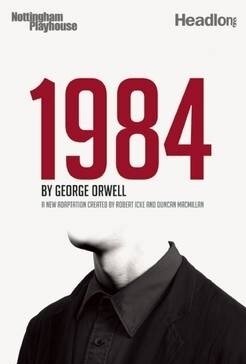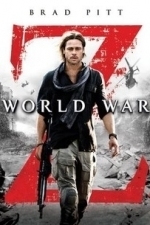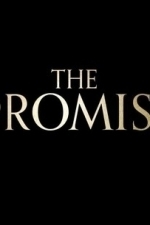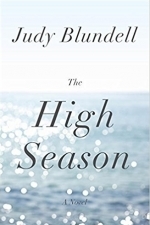Search
Search results
BookwormMama14 (18 KP) rated London Tides (MacDonald Family Trilogy, #2) in Books
Jan 2, 2019
London Tides by Carla Laureano
Reviewed by Rachel Dixon
Radiant Lit Blog Tours
Genre: Romance
Publisher: David C. Cook
Date Published: June 1, 2015
Grace Brennan has seen the brutality of war first hand. Will she give up her identity in her career to build a new life with the man she loves?
Ian MacDonald has not seen Grace since she left him ten years ago. Grace has suffered very severe trauma with her job as a conflict photojournalist. As she searches for a place to call home, can she lay to rest the ghosts of her past? When their lives are thrown together again, they are different people than they were ten years ago. Will they be able to forge a new life together? Or will the past push them further apart then ever before?
London Tides had me biting my nails till the last page. There are a lot of ups and downs and I had no idea which direction Carla Laureano would take me next. The romance was a little more heated than in the first book, but it was still clean. Although I have never experienced PTSD, there was a side of Grace that I could completely relate to. That is the desire to know that our lives meant something. I think there is a piece inside all of us that wants to know that our lives made a difference in the world. We may not all be able to find a magic cure for a disease or personally finance an endeavor to put shoes on the feet of an entire village. But every life matters and every life makes a difference in the sphere we are placed in. Our friends, our co-workers, our children and our family. I have to believe that I have been called to where I am for a reason. I may never see the results of the impact my life has been, but God sees it. And He knows and cares about whatever challenges we are facing and if we let Him, He will guide and support us through it all. I have been swept away by the MacDonald family and can not wait for the finale Under Scottish Stars releasing Summer 2016.
Carla Laureano is the author of the RITA® award-winning romance Five Days in Skye as well as London Tides and the Celtic fantasy series The Song of Seare (as C. E. Laureano). A graduate of Pepperdine University, she worked as a sales and marketing executive for nearly a decade before leaving corporate life behind to write fiction full-time. She currently lives in Denver with her husband and two sons.
I received a free copy of London Tides as part of a blog tour with Radiant Lit in exchange for my honest review. Review copy provided by David C Cook.
Reviewed by Rachel Dixon
Radiant Lit Blog Tours
Genre: Romance
Publisher: David C. Cook
Date Published: June 1, 2015
Grace Brennan has seen the brutality of war first hand. Will she give up her identity in her career to build a new life with the man she loves?
Ian MacDonald has not seen Grace since she left him ten years ago. Grace has suffered very severe trauma with her job as a conflict photojournalist. As she searches for a place to call home, can she lay to rest the ghosts of her past? When their lives are thrown together again, they are different people than they were ten years ago. Will they be able to forge a new life together? Or will the past push them further apart then ever before?
London Tides had me biting my nails till the last page. There are a lot of ups and downs and I had no idea which direction Carla Laureano would take me next. The romance was a little more heated than in the first book, but it was still clean. Although I have never experienced PTSD, there was a side of Grace that I could completely relate to. That is the desire to know that our lives meant something. I think there is a piece inside all of us that wants to know that our lives made a difference in the world. We may not all be able to find a magic cure for a disease or personally finance an endeavor to put shoes on the feet of an entire village. But every life matters and every life makes a difference in the sphere we are placed in. Our friends, our co-workers, our children and our family. I have to believe that I have been called to where I am for a reason. I may never see the results of the impact my life has been, but God sees it. And He knows and cares about whatever challenges we are facing and if we let Him, He will guide and support us through it all. I have been swept away by the MacDonald family and can not wait for the finale Under Scottish Stars releasing Summer 2016.
Carla Laureano is the author of the RITA® award-winning romance Five Days in Skye as well as London Tides and the Celtic fantasy series The Song of Seare (as C. E. Laureano). A graduate of Pepperdine University, she worked as a sales and marketing executive for nearly a decade before leaving corporate life behind to write fiction full-time. She currently lives in Denver with her husband and two sons.
I received a free copy of London Tides as part of a blog tour with Radiant Lit in exchange for my honest review. Review copy provided by David C Cook.
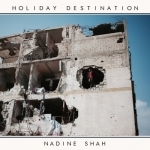
Holiday Destination by Nadine Shah
Album Watch
For most of us, 2016 was a tumultuous and ugly year - one steeped in political chaos and an air of...
rock pop
Chris Sawin (602 KP) rated Jojo Rabbit (2019) in Movies
Oct 8, 2019
Roman Griffin Davis stars as Jojo Betzler in Taika Waititi’s black comedy Jojo Rabbit. Along with his second best friend Yorki (Archie Yates), Jojo is a part of a Nazi training camp for young boys and girls to become the men and women suited for Hitler supporting soldiers. Meanwhile, Jojo’s mom Rosie (Scarlett Johansson) is secretly hiding a young Jewish girl named Elsa (Thomasin McKenzie) within the walls of their home. Jojo, who is incredibly adamant about Hitler becoming his first best friend, has Hitler as an imaginary friend (portrayed by Taika Waititi) who shows up whenever Jojo seems to need a pep talk.
Based on the 2008 novel Caging Skies by Christine Leunens, Jojo Rabbit is a bonkers twist on one of the most devastating wars and tyrannical madmen in history. On the surface, the film is about a child attempting to become a Nazi because he views HItler as this great leader. He has to attempt to learn to kill, hate Jews, and essentially ignore all of his morals in order to just fit in with an army who believes they are the superior race. The intriguing aspect is that Waititi injects this unexpected tenderness and has concocted a film that has a heartbeat that is entirely too human and too genuine for any sort of project involving the likes of Adolf Hitler.
The Jojo/Hitler dynamic is an incredibly playful one. Hitler only seems to show up when something doesn’t go according to plan for Jojo or he needs some words of encouragement when times get tough. Hitler is a figment of Jojo’s imagination and is completely reactionary to Jojo’s world. If Jojo gets scared, Hitler shows up to remind him why he’s risking his own self comfort. While Waititi is funny and awkwardly charming as Hitler, which is an odd thing to say in itself, don’t overlook Archie Yates. Roman Griffin Davis encapsulates this innocence that even Elsa describes as something along the lines of a ten year old playing dress up with his friends in order to join a club. But Yates often plays off of Davis humorously and amusingly and will likely be forgotten about by some by the time they leave the theater.
Seemingly tapping into his inspiration for Gentlemen Broncos, Sam Rockwell portrays Captain Klenzendorf - a former war veteran who lost an eye and is now forced to teach children how to be soldiers. He has this strange tension on the verge of romance thing going on with his right hand man Finkel (Alfie Allen) and has extravagant taste with intricate ideas for his new uniform. Rockwell and Allen are hilarious and outshine Rebel Wilson’s Fräulein Rahm who never seems to serve much purpose before or after her line about, “having 18 kids for Germany.”
The sweet nature of Jojo Rabbit is expanded upon with the mother/son relationship between Rosie and Jojo. They have completely different viewpoints of a world on the verge of total annihilation where Jojo is slowly nudged into his mother’s mindset. It’s not so much a brainwashing as it is Jojo coming to terms with how he feels about people. Jojo Rabbit defines who we all are on the inside and simply explores the path anyone with an everyday beating heart (not rooted by a tiny mustache) would travel down over the course of their youth.
It’s kind of extraordinary that Jojo Rabbit has been released during a time when Fox Searchlight Pictures is owned by Walt Disney Studios Motion Pictures where a guy directing two of the biggest Thor movies did a side project where he plays Hitler and never had to attempt to keep that a secret. Waititi puts Jojo Betzler through the ringer by blowing him up repeatedly and throwing him down a flight of stairs all while being bullied and pushed around the entire time. But dammit if Jojo Rabbit isn’t one of the most heartfelt and imaginative fairy tales of the year.
This is a film where storytelling, embellishing and elongating false reputations, and glorifying urban myths is the driving force of entertainment. Underneath its layers of SS uniforms, dangerous pistols, and knives you should never leave home without, Jojo Rabbit is a touching film about human compassion with an intimacy that is absolutely unparalleled. Categorized somewhere between Wes Anderson’s Moonrise Kingdom and an imaginative concept that is an obvious homage to Calvin and Hobbes, love feels like it’s the only thing spreading across the world more powerful than war and Jojo Rabbit is more than happy to hype you up and throw you in love’s way without remorse.
Based on the 2008 novel Caging Skies by Christine Leunens, Jojo Rabbit is a bonkers twist on one of the most devastating wars and tyrannical madmen in history. On the surface, the film is about a child attempting to become a Nazi because he views HItler as this great leader. He has to attempt to learn to kill, hate Jews, and essentially ignore all of his morals in order to just fit in with an army who believes they are the superior race. The intriguing aspect is that Waititi injects this unexpected tenderness and has concocted a film that has a heartbeat that is entirely too human and too genuine for any sort of project involving the likes of Adolf Hitler.
The Jojo/Hitler dynamic is an incredibly playful one. Hitler only seems to show up when something doesn’t go according to plan for Jojo or he needs some words of encouragement when times get tough. Hitler is a figment of Jojo’s imagination and is completely reactionary to Jojo’s world. If Jojo gets scared, Hitler shows up to remind him why he’s risking his own self comfort. While Waititi is funny and awkwardly charming as Hitler, which is an odd thing to say in itself, don’t overlook Archie Yates. Roman Griffin Davis encapsulates this innocence that even Elsa describes as something along the lines of a ten year old playing dress up with his friends in order to join a club. But Yates often plays off of Davis humorously and amusingly and will likely be forgotten about by some by the time they leave the theater.
Seemingly tapping into his inspiration for Gentlemen Broncos, Sam Rockwell portrays Captain Klenzendorf - a former war veteran who lost an eye and is now forced to teach children how to be soldiers. He has this strange tension on the verge of romance thing going on with his right hand man Finkel (Alfie Allen) and has extravagant taste with intricate ideas for his new uniform. Rockwell and Allen are hilarious and outshine Rebel Wilson’s Fräulein Rahm who never seems to serve much purpose before or after her line about, “having 18 kids for Germany.”
The sweet nature of Jojo Rabbit is expanded upon with the mother/son relationship between Rosie and Jojo. They have completely different viewpoints of a world on the verge of total annihilation where Jojo is slowly nudged into his mother’s mindset. It’s not so much a brainwashing as it is Jojo coming to terms with how he feels about people. Jojo Rabbit defines who we all are on the inside and simply explores the path anyone with an everyday beating heart (not rooted by a tiny mustache) would travel down over the course of their youth.
It’s kind of extraordinary that Jojo Rabbit has been released during a time when Fox Searchlight Pictures is owned by Walt Disney Studios Motion Pictures where a guy directing two of the biggest Thor movies did a side project where he plays Hitler and never had to attempt to keep that a secret. Waititi puts Jojo Betzler through the ringer by blowing him up repeatedly and throwing him down a flight of stairs all while being bullied and pushed around the entire time. But dammit if Jojo Rabbit isn’t one of the most heartfelt and imaginative fairy tales of the year.
This is a film where storytelling, embellishing and elongating false reputations, and glorifying urban myths is the driving force of entertainment. Underneath its layers of SS uniforms, dangerous pistols, and knives you should never leave home without, Jojo Rabbit is a touching film about human compassion with an intimacy that is absolutely unparalleled. Categorized somewhere between Wes Anderson’s Moonrise Kingdom and an imaginative concept that is an obvious homage to Calvin and Hobbes, love feels like it’s the only thing spreading across the world more powerful than war and Jojo Rabbit is more than happy to hype you up and throw you in love’s way without remorse.
RəX Regent (349 KP) rated Transformers: Dark of the Moon (2011) in Movies
Feb 25, 2019
Underrated
Contains spoilers, click to show
This is the third and final installment of the iconoclastic Transformers franchise. By the law of diminishing returns, this should have fallen well below the par from the excellent first outing; well, has it? The answer is a definite no. First off, it's not as good as good as Transformers, lacking much of the comedy and puerile action, but it would be on par with the Revenge Of The Fallen, which is not up to much in many critic's opinions, which was overly smashy, confused and missed some of the pacing of the first.
Dark Of the Moon carries on the tradition of complex back stories, tying in to U.S. Space Race history, this time, right back to 1962 and the inception of the Apollo programme. Here, they postulate that NASA's moon race was purely conceived to get to the Moon first to recover a massive Cybertron based space craft, which had crashed in the Moon after the final battle on the doomed Transformer planet.
At the crash site, Sentinel Prime is discovered and years later, Optimus Prime recovers him, as he was the true leader of the Autobots in their war with the Decepticons. Also, there are a collection of what are referred to as Pillars, very 3D friendly, yet still plausibly so, floating metallic rod styled devices which would play a pivotal role later. Meanwhile, Sam, Shia LaBeouf, has moved on from his Megan Fox girlfriend and has now, somewhat inexplicably, moved in with Victoria Secrets model, though in the film, she's supposed to be some form a P.A., played by the inept Rosie Huntington-Whiteley, which is simply ridiculous. This point is also brought up in the script as his own mother warns him that he would not get so lucky a third time!
The world is has now been invaded by Decepticons and Sam, along with his collection of mis-matched allies and seven remaining Autobots are all that stands between them and total destruction. Sounds like a good setup but with a typical running time 157 minutes, the plot was simply too thin to sustain itself, leading to patchy pacing and moments that begin to plod. I didn't find this to be all that bad but others felt that the word boring would more than a little apt.
You see for me, the pay off of robots beating the hell out of each other and taking the world down with them is worth the wait and the flaws in the narrative, but for others, this will not be the case. Leonard Nimoy's voice portrayal of Sentinel Prime was fine, but the constant need to remind us that it was Mr. Spock wasn't. This culminated in a completely unnecessary piece of dialogue where Sentinel reprises Spock's line from Star Trek II, "...The needs of the many, out way the needs of the few". This was a quote to far in my opinion, certainly when justifying some questionable and immoral acts...
Then there was the 3D, and what 3D it was! This finally proved that a blockbuster can be produced in 3D without sacrificing the cinematography for cynical dimensional gestures. The film looked as I would expect any 2D blockbustering actioner to look, with sweeping aerial action and objects flying towards the audience but the 3D effect only amplified this, and didn't make it. This was well conceived and I take my hats of to them. This is what 3D should look like and it was visually arresting.
Overall, the film provided all the thrills and spills that you would expect from Transformers, with acceptable acting for a film of this genre, with the gross exception of Rosie Huntington-Whiteley, who should stick to modeling and as acting or even speaking would seem to be light years beyond her. John Malkovich and Frances McDormand, deliver great cameos and bring some of the only really decent acting to the film, with the further exceptions of the returning John Turturro and the addition of Alan Tudyk, who both deliver most of the belly laughs in this outing.
It was fun but not as much fun as the previous films. DOTM was clearly trying to shift the tone and in doing so it succeeded at moving the film into a slightly darker, more action film place. This felt more like a straight forward 12 rated actioner such as Bay's other efforts, The Rock and Armageddon and a little less of the lighter more child friendly overtones of the previous two. Still, I enjoyed this and feel very strongly that the naysayers who would rate this film so lowly that you'd have to look for it in the gutter, have allowed themselves to take this way too seriously.
Is this the end of for Transformers? I hope so, but the door is still open and with the vast profits that it's already made, Transformers 4 could be just around the next corner. If that's the case, it is not what i would prefer, feeling that they've gone as far as they came but I would certainly run out to watch it!
Dark Of the Moon carries on the tradition of complex back stories, tying in to U.S. Space Race history, this time, right back to 1962 and the inception of the Apollo programme. Here, they postulate that NASA's moon race was purely conceived to get to the Moon first to recover a massive Cybertron based space craft, which had crashed in the Moon after the final battle on the doomed Transformer planet.
At the crash site, Sentinel Prime is discovered and years later, Optimus Prime recovers him, as he was the true leader of the Autobots in their war with the Decepticons. Also, there are a collection of what are referred to as Pillars, very 3D friendly, yet still plausibly so, floating metallic rod styled devices which would play a pivotal role later. Meanwhile, Sam, Shia LaBeouf, has moved on from his Megan Fox girlfriend and has now, somewhat inexplicably, moved in with Victoria Secrets model, though in the film, she's supposed to be some form a P.A., played by the inept Rosie Huntington-Whiteley, which is simply ridiculous. This point is also brought up in the script as his own mother warns him that he would not get so lucky a third time!
The world is has now been invaded by Decepticons and Sam, along with his collection of mis-matched allies and seven remaining Autobots are all that stands between them and total destruction. Sounds like a good setup but with a typical running time 157 minutes, the plot was simply too thin to sustain itself, leading to patchy pacing and moments that begin to plod. I didn't find this to be all that bad but others felt that the word boring would more than a little apt.
You see for me, the pay off of robots beating the hell out of each other and taking the world down with them is worth the wait and the flaws in the narrative, but for others, this will not be the case. Leonard Nimoy's voice portrayal of Sentinel Prime was fine, but the constant need to remind us that it was Mr. Spock wasn't. This culminated in a completely unnecessary piece of dialogue where Sentinel reprises Spock's line from Star Trek II, "...The needs of the many, out way the needs of the few". This was a quote to far in my opinion, certainly when justifying some questionable and immoral acts...
Then there was the 3D, and what 3D it was! This finally proved that a blockbuster can be produced in 3D without sacrificing the cinematography for cynical dimensional gestures. The film looked as I would expect any 2D blockbustering actioner to look, with sweeping aerial action and objects flying towards the audience but the 3D effect only amplified this, and didn't make it. This was well conceived and I take my hats of to them. This is what 3D should look like and it was visually arresting.
Overall, the film provided all the thrills and spills that you would expect from Transformers, with acceptable acting for a film of this genre, with the gross exception of Rosie Huntington-Whiteley, who should stick to modeling and as acting or even speaking would seem to be light years beyond her. John Malkovich and Frances McDormand, deliver great cameos and bring some of the only really decent acting to the film, with the further exceptions of the returning John Turturro and the addition of Alan Tudyk, who both deliver most of the belly laughs in this outing.
It was fun but not as much fun as the previous films. DOTM was clearly trying to shift the tone and in doing so it succeeded at moving the film into a slightly darker, more action film place. This felt more like a straight forward 12 rated actioner such as Bay's other efforts, The Rock and Armageddon and a little less of the lighter more child friendly overtones of the previous two. Still, I enjoyed this and feel very strongly that the naysayers who would rate this film so lowly that you'd have to look for it in the gutter, have allowed themselves to take this way too seriously.
Is this the end of for Transformers? I hope so, but the door is still open and with the vast profits that it's already made, Transformers 4 could be just around the next corner. If that's the case, it is not what i would prefer, feeling that they've gone as far as they came but I would certainly run out to watch it!
Jamie (131 KP) rated 1984 Nineteen Eighty-Four in Books
Jun 4, 2017
Overwhelmingly bleak (1 more)
Stars slow and a little bit didactic
A true nightmare world, a dystopian classic
Winston is our everyman, a middle aged average male living under the heel of a totalitarian regime. His work is bland, his food is bland, his every day routine is bland. Winston is losing it, he wonders about the world that was before the party and resists in small ways. He ponders about the subtle ways that the party exerts it’s control, by perpetual war, by rewriting history, by lying so blatantly that the members of the party have to accept the lies as truth. Winston dreams of revolution and finds himself seeking out others likes him.
Nineteen Eighty-Four was not an easy ready by any means, it’s startlingly brutal. The beginning starts off rather slow as the readers gets to know Winston, the way he thinks and learns about his every day routine and are introduced to key characters. The middle of the book picks up, but it breaks up the pacing of the novel due to the fact that it essentially turns into an essay that outlines the structure of the party and the moral implications of it’s actions. While info dumps can be a bit disjointing to read, I could bear with it for this novel. The third half of the novel caught me off guard and it spun wildly out of control. I loved it, even when I found it difficult to digest. This is what made the book so brilliant, it doesn’t just tell you about right and wrong and then wrap things up nicely, the horrible reality of the book comes crashing down on both Winston and the reader’s head in full force.
The power structure of the party is just downright diabolical. I could think of any other way to describe it; the method of control, the reasons for maintaining such a strict social order, the sheer scale of the party’s reach – all of it was terrifying when taken as a whole. There were points in the second half of the novel where I had to put the book down because it was stressing me out too much, and this was a first for me. I now understand fully what folks mean when they label something as “Orwellian,” and why this novel is hailed as one of the very best of the dystopia genre. Hell, there are others that I read that I thought were bleak, but none quite to this degree. Nineteen Eighty-Four makes other books in the dystopia genre seem like lighthearted adventures novels.
The novel is extremely effective in the delivery of it’s core message about government control and humanity by creating a potential future that is harrowing, particularly because of it’s plausibility, as a warning to all. This is the type of book that will stick with me for a long time and I’m glad I finally sat down to read it.
Nineteen Eighty-Four was not an easy ready by any means, it’s startlingly brutal. The beginning starts off rather slow as the readers gets to know Winston, the way he thinks and learns about his every day routine and are introduced to key characters. The middle of the book picks up, but it breaks up the pacing of the novel due to the fact that it essentially turns into an essay that outlines the structure of the party and the moral implications of it’s actions. While info dumps can be a bit disjointing to read, I could bear with it for this novel. The third half of the novel caught me off guard and it spun wildly out of control. I loved it, even when I found it difficult to digest. This is what made the book so brilliant, it doesn’t just tell you about right and wrong and then wrap things up nicely, the horrible reality of the book comes crashing down on both Winston and the reader’s head in full force.
The power structure of the party is just downright diabolical. I could think of any other way to describe it; the method of control, the reasons for maintaining such a strict social order, the sheer scale of the party’s reach – all of it was terrifying when taken as a whole. There were points in the second half of the novel where I had to put the book down because it was stressing me out too much, and this was a first for me. I now understand fully what folks mean when they label something as “Orwellian,” and why this novel is hailed as one of the very best of the dystopia genre. Hell, there are others that I read that I thought were bleak, but none quite to this degree. Nineteen Eighty-Four makes other books in the dystopia genre seem like lighthearted adventures novels.
The novel is extremely effective in the delivery of it’s core message about government control and humanity by creating a potential future that is harrowing, particularly because of it’s plausibility, as a warning to all. This is the type of book that will stick with me for a long time and I’m glad I finally sat down to read it.
JT (287 KP) rated World War Z (2013) in Movies
Mar 10, 2020
Zombies, they’ve been around for a while now in all shapes and sizes, yet like the walking undead the genre shows no signs of dying out. Director Marc Forster teams up with Brad Pitt for a zombie horror (if you can really call it that) which travels the world in search of a vaccine that will stop the world’s population being wiped out.
It doesn’t take long for the first action set piece to explode into life, as Pitt and his family face a race against time to get out of New York city and off the streets as the zombie pandemic takes a grip. It’s certainly enough to hold your attention as we watch the transformation. People scampering this way and that as hordes of zombies swarm the streets like rats coming up from the sewer.
Gerry secures safety on board one of the few remaining battleships and is told that he must join the fight to find a cure, or head back to hell with his family in tow. He then jets off on a whistle stop tour taking him to South Korea, Israeli and of all places Wales (that got a chuckle from the audience) where each destination kicks off another exciting and thoroughly enjoyable zombie set piece.
However one thing is missing from this film, something vital that sets it apart from others, gore. Given the PG-13 rating certain scenes cut away from anything resembling graphic violence, which was a massive shame. The lack of flesh eating action which fans are used to seeing is a real disappointment. It is an element that could have taken this film from good to great and I felt like I had been cheated out of my ticket price.
Forster’s CG zombie hordes are impressive, particularly rampaging through the Israeli back streets and the film certainly delivers on some slick tension with one or two jump out of your seat moments. But for me it’s not enough to carry the entire film through, and when things quieten down you’re not left with much else to fill the time before the next shit hitting fan moment.
The occasional plot hole threatens to rear its ugly head, and given the size of the budget the ending is a real let down, but it clearly hints at a potential sequel. If they choose to go down that route then blood must be spilled and lots of it. The acting in World War Z is hardly filled with standouts, and with the exception of Pitt, most only pop up from time to time. Like Matthew Fox’s paratrooper which pretty much feels like a cameo and James Badge Dale’s Captain Speke, around for minutes before taking one to the head.
Visually it’s great there is no question about that, the zombies are terrifying but it needed just a little bit more to push it into the front as one of the better zombie flicks.
It doesn’t take long for the first action set piece to explode into life, as Pitt and his family face a race against time to get out of New York city and off the streets as the zombie pandemic takes a grip. It’s certainly enough to hold your attention as we watch the transformation. People scampering this way and that as hordes of zombies swarm the streets like rats coming up from the sewer.
Gerry secures safety on board one of the few remaining battleships and is told that he must join the fight to find a cure, or head back to hell with his family in tow. He then jets off on a whistle stop tour taking him to South Korea, Israeli and of all places Wales (that got a chuckle from the audience) where each destination kicks off another exciting and thoroughly enjoyable zombie set piece.
However one thing is missing from this film, something vital that sets it apart from others, gore. Given the PG-13 rating certain scenes cut away from anything resembling graphic violence, which was a massive shame. The lack of flesh eating action which fans are used to seeing is a real disappointment. It is an element that could have taken this film from good to great and I felt like I had been cheated out of my ticket price.
Forster’s CG zombie hordes are impressive, particularly rampaging through the Israeli back streets and the film certainly delivers on some slick tension with one or two jump out of your seat moments. But for me it’s not enough to carry the entire film through, and when things quieten down you’re not left with much else to fill the time before the next shit hitting fan moment.
The occasional plot hole threatens to rear its ugly head, and given the size of the budget the ending is a real let down, but it clearly hints at a potential sequel. If they choose to go down that route then blood must be spilled and lots of it. The acting in World War Z is hardly filled with standouts, and with the exception of Pitt, most only pop up from time to time. Like Matthew Fox’s paratrooper which pretty much feels like a cameo and James Badge Dale’s Captain Speke, around for minutes before taking one to the head.
Visually it’s great there is no question about that, the zombies are terrifying but it needed just a little bit more to push it into the front as one of the better zombie flicks.
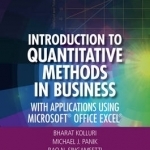
Introduction to Quantitative Methods in Business: With Applications Using Microsoft Office Excel
Michael J. Panik, Bharat Kolluri and Rao N. Singamsetti
Book
A well-balanced and accessible introduction to the elementary quantitative methods and Microsoft(R)...
Gareth von Kallenbach (980 KP) rated The Promise (2017) in Movies
Jul 11, 2019
Roughly a year ago, I found myself in a heated exchange with a friend about full and appropriate representation of people and history in films. I discussed the merits of expanding the scope beyond films about slavery and segregation with respect to African-Americans and stories of despair for other marginalized groups. It is, for me, demeaning to a people’s contributions in society and trivializes experiences. After engaging in what seemed to be an hour, my friend focused more on what she had to say that considering what I was addressing. It proved true when she stated “Well… at least black people have movies about slavery! You should be happy. We don’t even have a movie about the Armenian Genocide!” I was shocked, momentarily. I had never stated that one group deserved more of the spotlight or one’s history is more important that another, just that we need to have appropriate representation and inclusion of stories. All of our stories should be told and shared, especially the ones that are not widely known, understood, or even having a place within social studies courses in our public schools.
I knew of the Armenian Genocide and had a general understanding about the atrocities committed by the Ottoman Empire. There are several international films that address what took place or have the Genocide as part of the story. Even My Big Fat Greek Wedding makes reference to how Greeks were brutalized by the Turks during the period. What we were missing, at least in the realm of American Cinema, was a representation for US audiences to witness the horrors that these people fell victim to and, for some, were able to survive. In The Promise, audiences will get a history lesson about man’s inhumanity to man.
When I first heard that this film was in production, I was interesting in how it would pan out. Would it be truthful, as painful as it may be? Would they overdo certain aspects? How much would they play with the truth? The filmmakers faced the same problems as those who brought forth Schindler’s List, The Pianist, and Life is Beautiful: How do you approach telling the story of genocide? How do you draw people in to a story that they may not be familiar with? Are people ready?
Summaries of the film that I read online made it seem as though this would be an Armenian version of Pearl Harbor in that this was a love story in the foreground of a film that features violence in the background. The summaries were misleading, maybe by design or maybe by mistake. The Promise, stars Oscar Isaac (Star Wars: The Force Awakens) as a young Armenia medical student, and Christian Bale (The Dark Knight) as a journalist for the associated press reporting on developments in the Ottoman Empire as war breaks out. The film whose description touts a love triangle in the midst of the Great War is far from what this films discusses and presents. There is a love story, however, it is not what the film is about or what is able to get the attention of the viewers.
The film reveals the deep held animosity of Armenians and other minority groups in the Ottoman Empire. It demonstrates the depth of mistrust and mistreatment of people who cast as “the other.” It is not simplistic in approach nor relying on over-the-top examples of violence in order for those watching to feel something. The development of events and characters permits the audience to connect with each of the characters, their families, their circumstances, and look for any moment in which they can escape the violence that is being committed to them. In no way does this film minimize what the victims went through. It doesn’t trivialize their experience in order to gain one’s attention.
The Promise satisfies the need for a discussion to emerge allowing for a truer examination of the genocide’s place in world history and within the framing of World War I. It presents a more representative picture of what people bore witness to or experienced themselves. With history, we are continuously searching for the truth and ensuring that history itself does not remained buried or ignored. This films serves the purpose in ensuring that more people are aware of not only the Armenian genocide, but all of the moving pieces that come with people fighting against an injustice or violence that is committed upon them because they are seen as less than or undesirable. It is my hope that with this film, studios see the necessity of bringing more stories of struggle, survival, and the will of humanity to overcome hardship and violence to audiences. The Promise although highly overdue, is essential, poignant, timely, and necessary in order for all of us to see that people are not forgotten.
I knew of the Armenian Genocide and had a general understanding about the atrocities committed by the Ottoman Empire. There are several international films that address what took place or have the Genocide as part of the story. Even My Big Fat Greek Wedding makes reference to how Greeks were brutalized by the Turks during the period. What we were missing, at least in the realm of American Cinema, was a representation for US audiences to witness the horrors that these people fell victim to and, for some, were able to survive. In The Promise, audiences will get a history lesson about man’s inhumanity to man.
When I first heard that this film was in production, I was interesting in how it would pan out. Would it be truthful, as painful as it may be? Would they overdo certain aspects? How much would they play with the truth? The filmmakers faced the same problems as those who brought forth Schindler’s List, The Pianist, and Life is Beautiful: How do you approach telling the story of genocide? How do you draw people in to a story that they may not be familiar with? Are people ready?
Summaries of the film that I read online made it seem as though this would be an Armenian version of Pearl Harbor in that this was a love story in the foreground of a film that features violence in the background. The summaries were misleading, maybe by design or maybe by mistake. The Promise, stars Oscar Isaac (Star Wars: The Force Awakens) as a young Armenia medical student, and Christian Bale (The Dark Knight) as a journalist for the associated press reporting on developments in the Ottoman Empire as war breaks out. The film whose description touts a love triangle in the midst of the Great War is far from what this films discusses and presents. There is a love story, however, it is not what the film is about or what is able to get the attention of the viewers.
The film reveals the deep held animosity of Armenians and other minority groups in the Ottoman Empire. It demonstrates the depth of mistrust and mistreatment of people who cast as “the other.” It is not simplistic in approach nor relying on over-the-top examples of violence in order for those watching to feel something. The development of events and characters permits the audience to connect with each of the characters, their families, their circumstances, and look for any moment in which they can escape the violence that is being committed to them. In no way does this film minimize what the victims went through. It doesn’t trivialize their experience in order to gain one’s attention.
The Promise satisfies the need for a discussion to emerge allowing for a truer examination of the genocide’s place in world history and within the framing of World War I. It presents a more representative picture of what people bore witness to or experienced themselves. With history, we are continuously searching for the truth and ensuring that history itself does not remained buried or ignored. This films serves the purpose in ensuring that more people are aware of not only the Armenian genocide, but all of the moving pieces that come with people fighting against an injustice or violence that is committed upon them because they are seen as less than or undesirable. It is my hope that with this film, studios see the necessity of bringing more stories of struggle, survival, and the will of humanity to overcome hardship and violence to audiences. The Promise although highly overdue, is essential, poignant, timely, and necessary in order for all of us to see that people are not forgotten.
FilmIntuition (33 KP) rated The High Season in Books
May 23, 2018
A Terrific Beach Read
(Note: I received an Advance Readers Copy of this book in exchange for an honest review.)
You can practically feel the sunlight pouring off the pages of The High Season, which, thanks to National Book Award Winner Judy Blundell's lyrical and painterly prose, is as picturesque as the summery Long Island beach house where the novel's action is set.
Told from the points-of-view of multiple characters, the instantly compelling book introduces us to the local residents and seasonal visitors of a beautiful beach community that's big enough to enjoy but small enough that secrets don't stay that way for long as its inhabitants soon find out.
Although it's made fiscal sense, renting their gorgeous home every summer in order to afford to live in it during the rest of the year has begun to wear on our main protagonist, museum director Ruthie Dutton and her fifteen-year-old daughter Jem.
Renovating a perfect beach house only to need to leave it during its peak season has been a leading cause of the breakdown of her marriage to Mike, with whom she's still on excellent terms, and even though the mature Jem puts up a good front, Ruthie hates the idea of uprooting her each summer.
And when her latest renter makes herself home a little too quickly – setting her sights on Mike, her friends, and possibly a permanent place in North Fork – Ruthie finds herself at war, especially after the renter's college aged stepson takes an interest in Jem, and nonprofit art world politics threaten her livelihood.
Breaking down the action on several fronts, we're also introduced to Ruthie's enigmatic young coworker Doe who's perfected the art of blending in anywhere and with anyone and it's in Doe's chapters that Blundell and the reader has the most fun as she gently satirizes the rich.
The first book the author has penned exclusively for adults, admittedly there are times when The High Season's older characters (especially Ruthie) act more immature than their younger counterparts do in incongruous scenes that hinders their relatability.
A gifted stylist, however, Blundell doesn't lose us for long. As high stakes subplots begin to collide, the book rebounds from a slightly muddled middle act – delivering a final hundred pages you'll fly right through just as fast as this entertaining read flies off shelves this summer.
You can practically feel the sunlight pouring off the pages of The High Season, which, thanks to National Book Award Winner Judy Blundell's lyrical and painterly prose, is as picturesque as the summery Long Island beach house where the novel's action is set.
Told from the points-of-view of multiple characters, the instantly compelling book introduces us to the local residents and seasonal visitors of a beautiful beach community that's big enough to enjoy but small enough that secrets don't stay that way for long as its inhabitants soon find out.
Although it's made fiscal sense, renting their gorgeous home every summer in order to afford to live in it during the rest of the year has begun to wear on our main protagonist, museum director Ruthie Dutton and her fifteen-year-old daughter Jem.
Renovating a perfect beach house only to need to leave it during its peak season has been a leading cause of the breakdown of her marriage to Mike, with whom she's still on excellent terms, and even though the mature Jem puts up a good front, Ruthie hates the idea of uprooting her each summer.
And when her latest renter makes herself home a little too quickly – setting her sights on Mike, her friends, and possibly a permanent place in North Fork – Ruthie finds herself at war, especially after the renter's college aged stepson takes an interest in Jem, and nonprofit art world politics threaten her livelihood.
Breaking down the action on several fronts, we're also introduced to Ruthie's enigmatic young coworker Doe who's perfected the art of blending in anywhere and with anyone and it's in Doe's chapters that Blundell and the reader has the most fun as she gently satirizes the rich.
The first book the author has penned exclusively for adults, admittedly there are times when The High Season's older characters (especially Ruthie) act more immature than their younger counterparts do in incongruous scenes that hinders their relatability.
A gifted stylist, however, Blundell doesn't lose us for long. As high stakes subplots begin to collide, the book rebounds from a slightly muddled middle act – delivering a final hundred pages you'll fly right through just as fast as this entertaining read flies off shelves this summer.
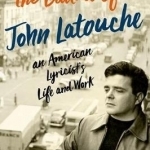
The Ballad of John Latouche: An American Lyricist's Life and Work
Book
Born into a poor Virginian family, John Treville Latouche (1914-56), in his short life, made a...

